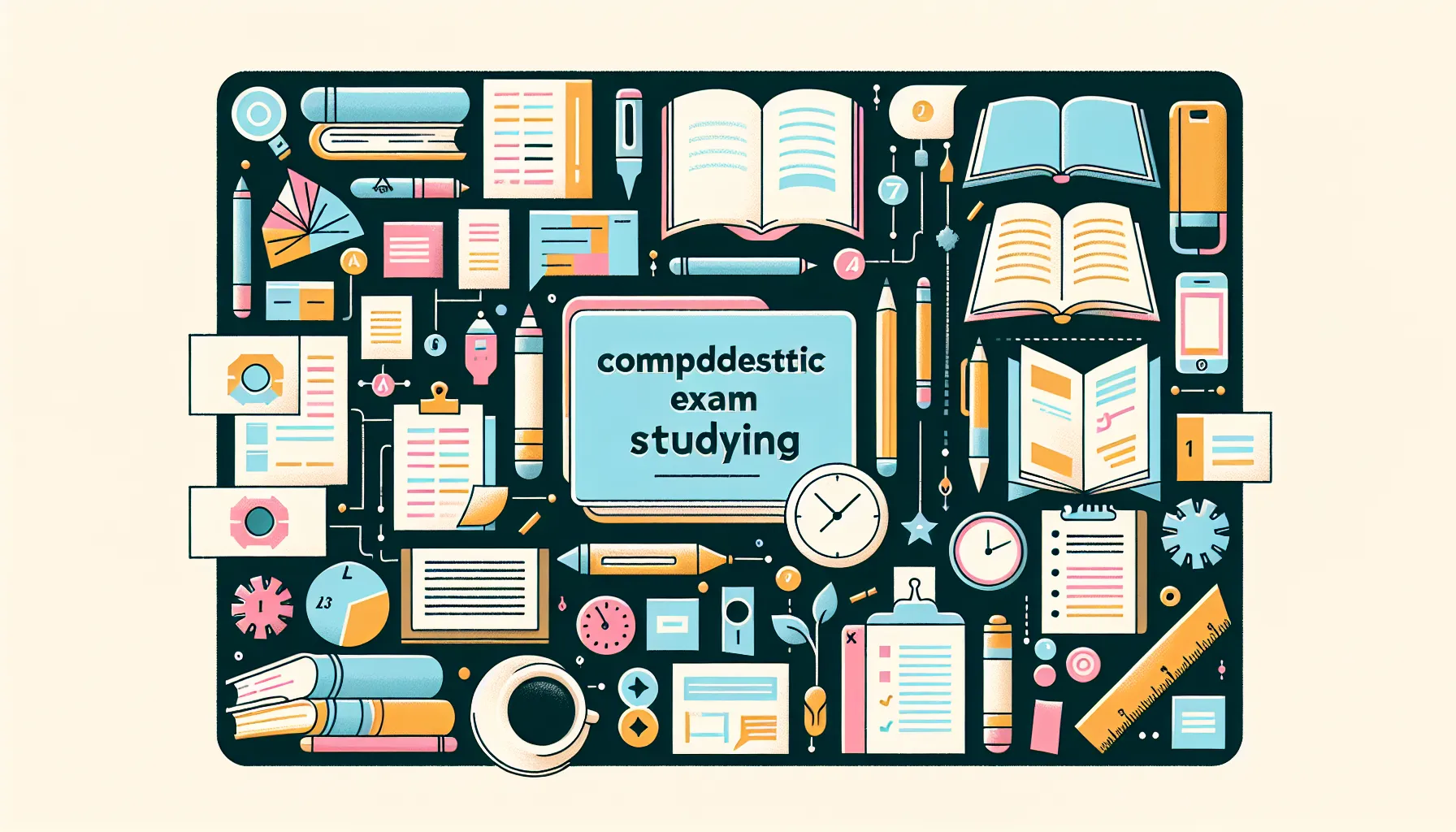Comprehensive Exam Study Techniques Checklist
Education & Learning
Checklist

Academic exam preparation toolkit with books, stationery, and digital devices neatly organized around a central clock, highlighting time management and organized studying methods
The journey to mastering comprehensive exams starts with a solid study strategy, tailored to encompass a wide array of subjects. This checklist serves as a vital tool for students, guiding them through the creation of a customized study plan and helping them set clear objectives. By organizing study materials and setting up a well-thought-out schedule that includes regular breaks, students can enhance their focus and avoid burnout.
Employing varied study techniques forms the core of effective exam preparation. Techniques such as practicing active recall, using mnemonics, creating mind maps, and teaching learned content ensure deeper understanding and long-term retention of information. Practical activities like summarizing chapters and applying theories to real-world examples align theoretical knowledge with practical applications, prepping students for both exams and real-life scenarios. Collaborative learning through study groups and feedback from peers further enriches this learning experience.
To ensure sustained study momentum, the checklist emphasizes the importance of reviewing and adjusting the study plan based on ongoing performance. Physical and mental wellbeing are also prioritized, recommending a balanced diet, regular exercise, and adequate sleep to optimize cognitive function and stamina throughout the study period. This structured yet flexible approach equips students not only to succeed in their exams but also instills lifelong learning habits.